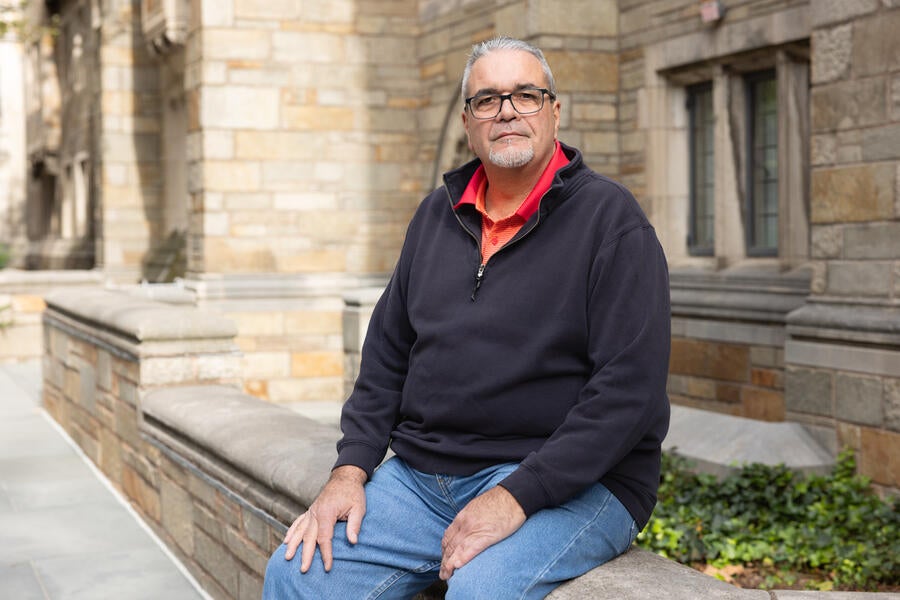
During the 30 years that he smoked cigarettes, Kevin Rose tried to quit many times before finally quitting for good in 2019. He has stayed tobacco-free ever since and credits a smoking cessation aid, the support of his Yale Health provider, Being Well at Yale, and the Yale Health Coaching Program for helping him.
“I made several attempts to quit, starting in my early 20s, including going cold turkey,” said Rose, building services supervisor at the Yale Law School. “It never worked, and looking back, it was a difficult way to do it. Ultimately, you need some support.”
The Tobacco Free at Yale initiative aims to create a healthier university community; foster a campus culture in which tobacco users are supported in their quit attempts; and become a model for developing a tobacco free campus.
Visit How to Quit to learn about these resources and available support.
Rose made other attempts to quit smoking after his children were born, including trying prescription cessation aids. “Unfortunately, I had an allergic reaction. I sampled a gum, but after a few weeks, my jaw hurt from so much chewing,” said Rose. For many years afterward, he continued smoking. “I felt healthy,” he said. “I told myself that there was no reason to quit.”
Reaching Out for Help
Knowing he had to do something, Rose contacted the Being Well at Yale team for options. “The Being Well at Yale team was a great resource and very supportive,” he said. “I participated in a group setting, and the health coach suggested I try a 21-day mindfulness-based smoking cessation app. During the in-person session, the coach asked us to take a deep breath. Doing that made me cough, which was a huge wake-up call for me.”
The Yale Health Coaching Program partners with TrestleTree to provide coaching services. “Coaching sessions follow a whole-person philosophy and are uniquely tailored and based around multiple areas of life and health that include exercise, nutrition, relational, and financial,” said Lisa Kimmel, director of wellness and education at Being Well at Yale. “Participants develop a trusting relationship with a health coach and create an individualized plan for change.”
Whenever he got a craving, Rose took a deep breath, and the cough would still be there. Not long after that first coaching session, he scheduled an appointment with his Yale Health provider and was prescribed a prescription medicine to help him stop smoking. “This helped cut down the cravings. It helps you reduce how much you smoke each day. In the end, it was that, combined with all I’ve learned, that finally got me to stop,” said Rose.
Today, Rose feels good, and his lungs are clear. To those who want to quit, he said, “Keep at it; you may have to try a few different options. Don’t go it alone — the Being Well at Yale team and the TrestleTree coaches can help — and don’t give up.”
Tobacco Free Yale
Quitting tobacco can be a significant personal challenge, and cessation programs are integral to helping individuals become smoke or vape-free. Yale is committed to supporting a tobacco free campus and offers several resources to help staff or their covered dependents quit smoking, vaping, or chewing tobacco through Tobacco Free Yale. The program offers a unique behavior-focused solution to quitting.
One of the hallmarks of the program is that you don’t have to be ready to quit to join. The Health Coaches work with each individual participant to understand why they use tobacco, why they might want to quit, and barriers they face in quitting. Since the program began in 2015, typically 30-40 participants engage with a coach each year, with 51% reaching a 6-month quit rate and 43% remaining tobacco free at 12-months.
Looking for a particular day to quit? On November 16, the American Cancer Society will host the Great American Smokeout, an opportunity for people who smoke or vape to commit to healthy, smoke-free lives—not just for a day, but year-round.






